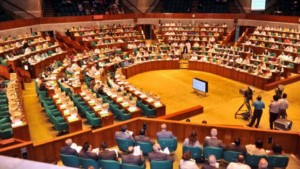by Jochen Steinhilber
Earlier this month, the leader of the youth section of the German SPD ruffled feathers with his call for an ‘attractive utopia’ as an alternative to capitalism.
Finally, someone has pointed out the massive economic elephant loitering in the room of political discourse: in an interview with the German weekly, Die Zeit, Kevin Kühnert, the head of the German Young Socialists, presented some theses on German companies and democratic socialism. And, with a few exceptions, politicians showed no discernible willingness to engage with what Kühnert actually said, dismissing it instead with such exclamations as ‘He must be on drugs!’ ‘Nostalgia for the GDR!’ or ‘Adolescent moaning on Twitter!’ and the condescending observation that the social romanticism would surely come out in the wash. Come on!
Those who dismiss reflections on a reorganisation of the economy along democratic lines as mere ‘news from ideological antiquity’—to paraphrase Alexander Kluge—and ridicule them without serious debate deprive themselves of the opportunity to engage in an open and, indeed, also more realistic discussion about the major challenges of our time. For, on a sober assessment, these challenges include questions about what function the economy serves, who benefits from it, how it should be structured and who actually makes economic decisions. Just because we have avoided serious discussion of our economic system for decades doesn’t mean that it isn’t necessary—on the contrary.
We are discussing the digital transformation, which will profoundly change how we live, work and participate in politics and society in the decades to come. The political and social significance of digital networking, smart factories and big data depends on how technology is used. It can deepen social inequalities and cement domination and profit maximisation, or it can improve working and living conditions and facilitate participation. That is why digitalisation needs political direction and should be based on social agreements. But how can this be achieved without, for example, bringing those companies under tighter democratic control that, for many years, have been engaged in secret negotiations on international trade policy to ‘protect’ the digital and services agenda from all state intervention for years to come?
The question of democracy in the economy
Also, those who will rightly champion the ecological transformation in the coming years and want to pursue it in a maximally inclusive way will have to ask themselves how this can be achieved under the current relations of power between the economy, politics and democracy—especially under lower growth rates that allow less space for redistribution. Anyone who now claims that considering the challenges of climate protection, a debate on economic democracy is a diversionary tactic and at best of theoretical rather than political interest, ignores the fact that the important strategic decisions must be taken at the economic level. Do we really want to leave crucial questions—where can growth continue because it serves the common good? what must be dismantled because it is ecologically and socially harmful? and who pays for the change?—for the most part to the dominant market players?
And finally, the frequently-invoked crisis of democracy at least suggests that we need to rethink how the economy works. One can hardly deny the shift of the centres of political power and decision-making towards powerful economic actors, the outsourcing of political control to the economy and the basic orientation to the interests of ‘the markets’. Hallmarks of this system, which has led to obscene levels of social inequality and a massive concentration of wealth in recent years, are an extensive decoupling from social needs, short-termism and evaluation of companies geared to quick profit with overblown expectations of return on investment.
Under conditions of ‘market democracy’, the outcomes of market-driven economic processes are often no longer subjected to political evaluation and, where necessary, corrected. Instead, the common good is adapted to the needs of the markets. Many private decisions, for example concerning housing and pension schemes, have long been massively influenced by financial-market operators. Since the accumulation of economic power goes hand in hand with political influence, large companies now not only operate as economic entities but also feature as political and social institutions in negotiations on new trade agreements, in national legislative processes and in foreign policy.
If we take the slogan of ‘democratising democracy’ seriously, then we need to think about how the power wielded by companies can be democratised. This is also necessary because a large portion of the population feels a loss control and sense of injustice that their needs and biographies are no longer being heeded. And this is not rooted primarily in opposition to immigration but instead in the broken promise of social advancement. After the collapse of Lehman Brothers and the resulting need to bail out the banks, many of those who for years had to tighten their belts for the sake of German economic competitiveness began to ask themselves as never before who is really governing whom here.
What this has to do with 2008
In view of the 2008 financial and economic crisis, which led the global economy to the brink of the abyss; succeeding scandals over the manipulation of interest rates, cum-ex trades, the Panama papers and tax avoidance as an economic model; and, in the wake of the massive cases of fraud in the automotive industry, it’s difficult to maintain a basic faith in large corporations, their managers, major shareholders and umbrella organisations and to trust in the private sector’s ability to cope with the challenges of the future. This is where a rethink must begin, if for no other reason than that the actions of a number of important companies in recent years have undermined the legitimacy of democratic political institutions.
Granted, the model of a highly centralised state economy was a failure. But there’s also little to suggest that we would be well armed for the future with the private concentration of capital and economic power in the hands of a few or with shareholder-value and privatisation strategies.
The good news is that these two alternatives don’t exhaust our options. It’s not just a matter of ‘whose name is on the doorbell’, but of who gets to decide on and control the basic goals and rules of business. Therefore, thinking about approaches to economic democracy is neither far-fetched nor regressive, but a long overdue contribution to the issue of how best to tackle social justice, environmental change and democratic renewal.
In fact, today many see the economy mainly as a private matter in which the state should intervene at most to solve a crisis, as it did in 2008. The economy is an economic matter—but one with consequences for society. If we want to halt the surrender of democratic political power to economic actors and reverse this trend, and if we want social goals once again to set the framework for economic action, then we must think about how this should be achieved.
Some pointers towards necessary components, strategies and social agreements already exist. An economic democracy involves higher levels of state intervention in and democratic control over economic processes. More democracy in the workplace is certainly an important factor here because, today, when it comes to the central questions of company policy, democracy, for the most part, ends at the factory gates. Yes, the rights of co-determination do exist in the workplace. But, with the exception of the large companies in the coal and steel industry, when it comes to corporate co-determination the employers call the shots.
In an economic democracy, supervisory or advisory boards would always have to include equal representation for capital and labour, possibly supplemented by a third seat representing the state, consumer protection and environmental concerns, among others. These bodies would also have to decide on key corporate issues such as financing, investment, profit appropriation and relocations.
A co-operative economy
We also need to revive the idea of promoting co-operatives and self-governing enterprises under employee ownership. Until now they have been relegated to a niche, above all in the small-business sector. In many countries, they were born of necessity and play a major role where the market and the state have failed. As an element of economic democracy, the state must specifically promote and protect them. It must provide the ‘development tools’, such as infrastructure, capital, technology and knowledge, for co-operative and public-interest based approaches.
The purpose of these approaches at the company level is not just to replace authoritarian structures with democratic processes behind the factory gates. Here, economic democracy also means enabling people through their thoughts, actions and interventions to make a difference in a central area of their lives and—in cooperation with others—to regain ownership of their world. Numerous examples of self-governed companies demonstrate that these measures are not at odds with efficient and effectively run businesses.
However, approaches to economic democracy extend beyond the company level. Economic democracy calls for social agreements, for example over the sectors that should not be profit-driven because they provide existential basic goods. This applies first and foremost to the energy, water and health sectors, to housing and to the provision of transportation and digital infrastructure. In other sectors, the key issue will be to restore performance-based competition or to protect it through strong anti-trust laws that prevent the concentration of economic power. We also need far-reaching and binding rules for companies and their management.
Economic democracy one step at a time
It’s difficult to answer the question of how much sway economic planning must have in economic democracy and how it can be designed in democratic and efficient ways. And lest we fall prey to a caricature—no, it’s not a matter of society determining every detail of production and consumption. Rather, it’s about influencing the central instrument for controlling the economy, namely the investments that decisively influence what, how and where things are produced and how technology is to be implemented. This calls in the first instance for a massive expansion of instruments for indirectly steering investment, such as taxes, incentives or the denial of public subventions.
In order to ensure that important tasks for the future are accomplished, corporate taxes can be used to secure funds for social investment, which are then funnelled back to the companies in accordance with the guidelines of parliaments and planning councils. In those cases where large corporations structure entire markets, it could make sense to convert private capital into public property. Restructuring the banking and financial sector and stabilising it with a strong public sector are prerequisites for a democratic economy.
In all likelihood, nobody can currently claim to have a finished concept of economic democracy. In any case, the best route to more democracy in the economy does not lead through a master plan, but through different concepts for answering different questions—and certainly also through public reflection and public debate. For many difficult questions remain open, such as the relation between the public and private sectors, how to strike a balance between entrepreneurial autonomy and public control, and how economic democracy can be implemented and formulated as a European project under the conditions of a global economy.
Nevertheless, we should not relativise our expectations. Today democracy is a firmly-anchored value in our society and is regarded throughout the world as the norm of good social coexistence, because it keeps power accessible in principle and distributes it among many, instead of cementing and concentrating it in the hands of a few. The practice of democracy should, therefore, permeate all areas of society. So far, there’s no reason to believe that democracy is not also the guiding principle for good economic order.
This article first appeared in International Politics and Society.
(Jochen Steinhilber has been head of the Global Policy and Development department of the Friedrich-Ebert-Stiftung since 2010 and is the contact person with regard to fundamental international policy issues. Previously, he headed the FES office in São Paulo.) – Social Europe




